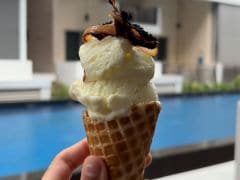They say our body is a temple and exercise is our prayer. It is a well-known fact that the kind of lifestyle our generation leads is a far cry from how our elders used to live. Be it a kid or an adult, our sedentary lifestyle is to blame. We are more indulgent and choosy with our food habits and we eat not only to fill our stomachs but to satiate our cravings. Add to it, the splendour of eateries that are opening up every day-everywhere.It is, therefore, very crucial to incorporate a strict workout regime to keep oneself fit. But your workout alone may not help you meet your goals. Your diet has an equally important role to play here. It is essential to fuel up before a workout. Dr. Anju Sood, a Bangalore-based Nutritionist explains, "If you do not eat anything before your workout, your body will find it difficult to lose weight. Whatever you eat, be it a banana or toast, acts as a stimulator. It improves your efficiency and mobilizes the fat."
Disclaimer:The opinions expressed within this article are the personal opinions of the author. NDTV is not responsible for the accuracy, completeness, suitability, or validity of any information on this article. All information is provided on an as-is basis. The information, facts or opinions appearing in the article do not reflect the views of NDTV and NDTV does not assume any responsibility or liability for the same.
Advertisement
3. Keep it light: A pre-workout snack should be low in fat, should digest quickly with a moderate amount of protein. Dr. Gargi Sharma suggests the following:
- Bananas contain simple and easily digestible carbs. They are rich in potassium which allows better muscle contraction during lifting weights and muscle cell growth after.
- Nuts and seeds are great sources of energy and make for perfect heart healthy snacks. Prefer cashews that are rich in Omega-3, walnuts rich in fats and sunflower seeds that keep your muscles healthy.
- Yogurt with fruits along with some nuts can provide you sufficient protein.
- Eggs and toast makes for a wholesome pre-workout snack. Bread supplies energy in the form of carbs while the protein rich eggs aid in muscle building and repair.
- You can have a quick salad with cottage cheese, fruits, nuts or seeds for energy.
- Oats and milk is the best pre-workout food. It keeps your cravings in place since it releases energy slowly.
Disclaimer:
Advertisement
For the latest food news, health tips and recipes, like us on Facebook or follow us on Twitter and YouTube.
Advertisement
